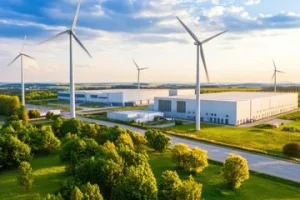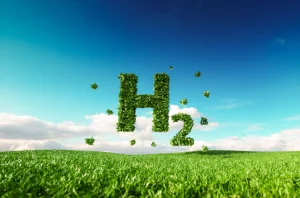What Is a Multipulse Converter? Ensuring Stable DC Supply for Green Hydrogen Plants
Introduction: Powering the Green Hydrogen Revolution Starts with Precision
Green hydrogen is having its moment and for good reason. As countries around the world race to decarbonize, hydrogen produced through water electrolysis using renewable energy has emerged as a front-runner in the clean energy race.
But here’s the catch: producing green hydrogen at scale demands a level of electrical precision that many overlook. You can’t just plug electrolysers into the grid and expect everything to work smoothly. That’s where multipulse converters come in—power electronics that quietly but critically ensure the stability, efficiency, and cost-effectiveness of hydrogen production.
If you’re building or upgrading a green hydrogen plant and looking for components that offer superior DC power quality, multipulse converters should be on your radar.
What You’ll Learn in This Blog
In this blog, we’ll explore:
- What a multipulse converter actually does in a hydrogen plant
- Why harmonics are harmful to electrolysers—and how multipulse technology reduces them
- The difference between 6-pulse, 12-pulse, and 24-pulse converter systems
- How improved power quality boosts hydrogen output, lowers costs, and extends equipment life
- Why multipulse converters are essential for DC power supply in hydrogen applications
- How YonderH2 supports hydrogen producers with cutting-edge multipulse converter solutions
Understanding Multipulse Converters: The Basics
A multipulse converter is a type of power electronic device used to convert AC to DC power with reduced harmonic distortion. In the context of green hydrogen production, they serve a vital role in powering water electrolysers reliably and efficiently.
Electrolysers require a stable, ripple-free DC voltage to split water into hydrogen and oxygen. But standard converters—like 6-pulse rectifiers—introduce harmonic distortions, leading to overheating, reduced efficiency, and stress on both electrolysers and the grid.
By using a multipulse configuration (12-pulse or higher), the system synchronizes multiple rectifiers with phase-shifting transformers. This reduces current and voltage harmonics, ensuring clean DC power that electrolysers can thrive on.
Harmonics: The Hidden Threat to Hydrogen Efficiency
Most industrial grids supply AC power, but electrolysis needs DC. When you convert AC to DC, harmonic currents are generated. These harmonics are basically electrical “noise” that can cause:
- Voltage dips and unstable DC output
- Increased heating in transformers and cables
- Reduced efficiency and lifespan of the electrolyser stack
- Higher maintenance costs due to system stress
According to the IEEE 519 standard, keeping harmonic distortion under control is vital for industrial-grade power systems, especially for sensitive loads like hydrogen electrolysis.
A 12-pulse multipulse converter reduces total harmonic distortion (THD) to below 8%. In contrast, a basic 6-pulse converter can push THD beyond 30%, creating a real bottleneck in hydrogen production.
Types of Multipulse Converters and Their Applications in Hydrogen Plants
Here’s a quick look at different multipulse configurations and their relevance for hydrogen electrolysis:
✅ 6-Pulse Converters
- Simple and inexpensive
- High harmonic distortion
- Not recommended for large-scale hydrogen projects
✅ 12-Pulse Converters
- Uses two 6-pulse converters with a 30° phase-shifting transformer
- THD drops below 8%
- Suitable for medium-to-large hydrogen plants
✅ 18-Pulse and 24-Pulse Converters
- Offer even lower harmonics (<5%)
- Ideal for utility-scale green hydrogen installations
- Higher efficiency, better reliability, lower O&M costs
Learn more about advanced power electronics for hydrogen here: YonderH2 Thyristor Converters
Real-World Impact: Why Power Quality Matters
Let’s say you operate a 10 MW hydrogen plant using PEM electrolysers. With a 6-pulse converter, you could face energy losses of up to 3%, adding up to 300 kW of wasted energy. That’s the equivalent of tens of thousands of dollars lost annually.
By switching to a 12-pulse or 24-pulse converter, you improve DC power quality, which leads to:
- Higher hydrogen output (due to fewer interruptions)
- Lower cooling requirements
- Reduced component fatigue
- Better compliance with grid codes and utility requirements
In an industry where every kilowatt counts, these converters deliver clear ROI.
The Link Between Grid Compatibility and Multipulse Converters
As green hydrogen production scales up, compatibility with national and industrial power grids becomes crucial. Multipulse converters play a vital role in bridging this compatibility gap.
Grid-connected electrolysers must maintain a low Total Harmonic Distortion (THD) to prevent interference and inefficiencies in the broader energy system. Traditional rectifiers often introduce current harmonics that ripple back into the grid. However, multipulse converters significantly reduce THD, ensuring that the hydrogen plant operates within grid compliance standards.
This matters even more when hydrogen production is coupled with renewable energy sources like solar or wind, which can have fluctuating output. Multipulse converters act as a stabilizing buffer, enabling smoother integration of intermittent renewable power into the electrolysis process.
Why Choose Multipulse Over Passive Filters?
You might wonder: can’t we just use harmonic filters instead?
Passive filters can reduce certain harmonics, but they add complexity, occupy more space, and can’t adapt to dynamic loads well. Multipulse converters, on the other hand:
- Eliminate harmonics at the source
- Don’t need tuning or maintenance
- Scale better with electrolyser size
- Offer smoother startup and shutdown cycles
It’s a future-proof solution for hydrogen plants designed to grow with demand.
Cost-Benefit Analysis: Are Multipulse Converters Worth It?
It’s easy to look at multipulse converters and assume they’re just another line item on a long procurement list. But dig deeper, and the cost-benefit story becomes clear.
Yes, multipulse systems may have a higher upfront cost compared to simpler 6-pulse setups. But here’s what you save over time:
- Energy Efficiency: Reduced harmonics mean lower power losses, which translates to savings on every kilowatt-hour consumed.
- Maintenance Costs: With reduced stress on downstream components, your system lasts longer and requires less upkeep.
- Downtime Avoidance: Equipment failures due to power instability are drastically reduced, meaning more operational hours and more hydrogen produced.
- Regulatory Compliance: Avoiding penalties or upgrade costs related to harmonic pollution or voltage instability.
In many industrial hydrogen setups, the ROI on multipulse systems is achieved within 2–3 years of operation, especially when supported by robust transformers and IGBT-based rectifiers like those offered by YonderH2.
Why Choose YonderH2?
At YonderH2, we understand the mission-critical nature of DC power in hydrogen plants. That’s why we design tailored multipulse converter systems with the following benefits:
- Custom 12-pulse and 24-pulse configurations
- Integrated with phase-shifting transformers
- Compatibility with IGBT-based and thyristor-based rectifiers
- Designed for heavy-duty electrolyser loads
- Proven track record in hydrogen and power electronics
Our converter transformers are built to match your voltage, phase, and harmonic mitigation needs, ensuring you get the most out of every watt of renewable power.
FAQs: Multipulse Converters for Hydrogen Production
1. Why are multipulse converters better than 6-pulse for hydrogen electrolysers?
Because they drastically reduce harmonics, protect the electrolyser stack, and improve overall energy efficiency.
2. What size of hydrogen plant should use a 12-pulse converter?
Any plant over 1 MW capacity benefits from multipulse systems, especially as you scale.
3. Do multipulse converters work with all electrolyser technologies (PEM, Alkaline)?
Yes, they are compatible with both types as long as voltage/current specs are matched properly.
4. Can I retrofit my existing 6-pulse setup with a multipulse converter?Yes, especially if you’re also upgrading your transformers. Consult our team for a custom solution.
5. How do multipulse converters reduce downtime?
By delivering cleaner, stable power, they reduce electrical stress, leading to fewer breakdowns and less maintenance.
Final Word: Cleaner Power = Cleaner Hydrogen
Power electronics may not grab headlines, but they are the foundation of every efficient green hydrogen plant. Without the right DC power supply, even the best electrolysers fall short. Multipulse converters ensure stable, harmonics-free power that maximizes hydrogen output while minimizing losses.
Power electronics may not grab headlines, but they are the foundation of every efficient green hydrogen plant. Without the right DC power supply, even the best electrolysers fall short. Multipulse converters ensure stable, harmonics-free power that maximizes hydrogen output while minimizing losses.
Why Partner with YonderH2?
With deep expertise in power conversion, rectifiers, and transformers, YonderH2 empowers energy leaders to scale hydrogen production without compromising on efficiency or power quality.
We don’t sell products—we deliver engineered systems that work together to help you produce clean hydrogen reliably and profitably.
✔ Customized solutions
✔ Built for long-term grid compliance
✔ Optimized for electrolyser stability and output
Explore our products and solutions at: https://yonderh2.com
Let’s Build the Future of Clean Energy Together
Looking to upgrade your hydrogen plant’s power electronics?
Talk to the experts who understand the unique challenges of green hydrogen production.
Contact YonderH2 today and let’s power your hydrogen future—efficiently.




